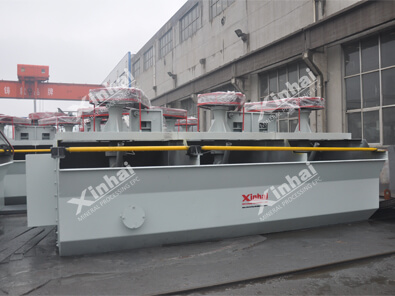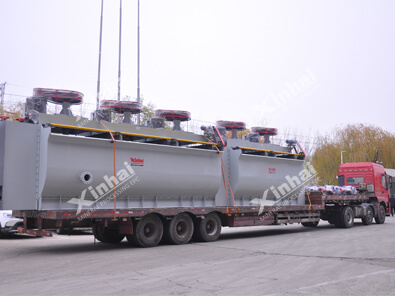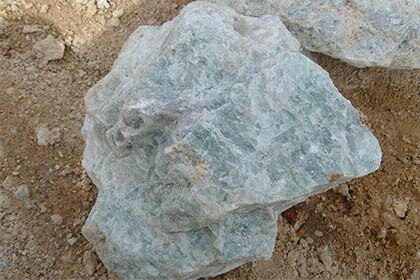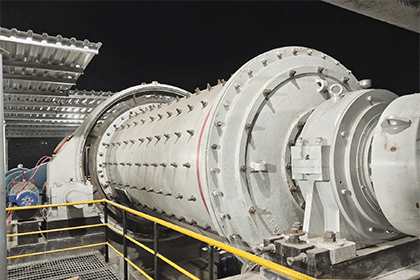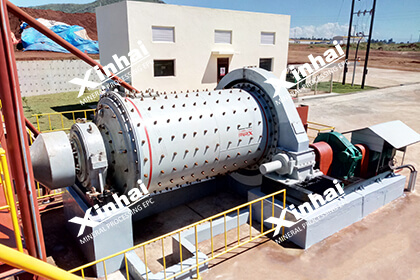Copper Flotation Process | What is Flotation in Oxide Copper Extraction?
 Laura
Laura
 May 30, 2022
May 30, 2022
 1146
1146
If you want to know more details about equipment, solutions, etc, please click the button below for free consultation, or leave your requirements!

( 3D rendering of a 1500 tpd copper ore flotation processing project )
In the last article, we mainly explained the flotation process of sulfide copper ore. The flotation method is also the main separation method of modern oxide copper ore and mixed copper ore. In this article, we will introduce them one by one.
Let's start!
01 Oxide Copper Ore Flotation Process
Back#1 Direct Flotation Process of Oxide Copper Ore
The direct flotation process of oxide copper ore is treated with scavengers, mainly including fatty acid flotation method, amine collector flotation method, chelating agent-neutral oil flotation method and emulsion flotation method. It is often used in simple structure. , The nature of relatively simple oxide copper ore.
l Fatty Acid Flotation Process
The fatty acid floatation process uses fatty acids and their soaps as collectors, and it is necessary to add gangue inhibitor water glass, phosphate and slurry conditioner sodium carbonate during flotation. Fatty acid and soap collectors can flotate malachite and azurite well, and use fatty acids with different hydrocarbon chains to flotate malachite. As long as the hydrocarbon chain is long enough, its collecting ability is very strong.
The fatty acid flotation method is mostly used for oxide copper minerals whose gangue is not carbonate. If the gangue contains a large amount of iron, manganese and other minerals, the flotation index will be deteriorated, and the sludge will also cause the fatty acid to fail.
l Amine Flotation Process
Amine flotation method, also known as cationic collector flotation method, is a commonly used flotation method for non-ferrous metal oxide ores (copper, lead, zinc). It is used in malachite, azurite and chalcopyrite, etc.
Amine collectors are selective for oxide copper, because amines also have a capturing effect on many gangues. Before sorting, pre-desliming is required, but for argillaceous oxide copper, pre-desliming will lead to copper Therefore, the premise of choosing amine flotation method is the selection and control of inhibitors in gangue minerals. At present, commonly used gangue inhibitors include seaweed powder, lignoate (or cellulose lignosulfonate) and polyacrylic acid.
l Chelating Agent - Neutral Oil Flotation Process
The chelating agent-neutral oil flotation process refers to the use of a certain chelating agent and a neutral oil to form a collector to complete the flotation, which is mostly used for refractory copper oxides (such as silicyl malachite). The chelating agent-neutral oil flotation process not only has good selectivity and collection effect, but also can ensure high sorting index and reduce chemical consumption. And the chelating agent also has a selective inhibitory effect.
However, the cost of the chelating agent is relatively high, and the currently used chelating agents include octyl-substituted basic dye malachite green, potassium octyl hydroxamate, benzotriazole and neutral oil emulsifier, N-substituted iminodiacetic acid Salts, polyamines and condensates of organic halides, etc.
l Emulsion Flotation Process
The emulsion flotation process is mainly to vulcanize oxide copper minerals first, then add copper complexing agents to form a stable lipophilic mineral surface, and then use neutral oil emulsion to cover the surface of the minerals, resulting in strong hydrophobicity. In a floatable state, the minerals can be firmly attached to the air bubbles to complete the selection.
#2 Sulfide Flotation Process of Oxide Copper Ore
There are two main types of oxide copper sulfidation flotation methods: conventional sulfidation flotation and hydrothermal sulfidation flotation.
l Conventional Sulfide Flotation Process
In the conventional sulfide flotation method, oxide copper minerals are first sulfided (using sodium sulfide or other vulcanizing agents), and then high-grade xanthate collectors are used for flotation. In the vulcanization operation, the lower the pH value of the pulp, the faster the vulcanization operation, and the vulcanizing agent such as sodium sulfide is easier to vulcanize.
Sulfidation flotation method is mainly used to treat oxide copper minerals, mainly copper carbonates, such as malachite, azurite and other minerals, or cuprite, but special treatment is required for silicic malachite, otherwise the sulfide Not very effective, not even vulcanizing.
l Hydrothermal Vulcanization Flotation Process
The hydrothermal sulfidation flotation process extends the conventional sulfidation flotation method. The sulfidation operation is carried out under the condition of hot pressing, and the sulfur is chemically reacted with the oxide copper under the condition of hot pressing, so as to obtain stable and easy-to-select man-made copper sulfide minerals. The same minerals are recovered by flotation of copper sulfide in warm water. This method strengthens the ore pretreatment-pre-sulfiding process, but this process has extremely high temperature requirements, large fuel consumption and long sulfidation time.
02 Mixed Copper Ore Flotation Process
BackMixed copper ore beneficiation generally adopts sulfidation flotation method, and there are two technological processes: one is to select copper sulfide minerals first, and the tailings are sulfided before selecting oxide copper minerals; the other is to use sulfided oxide copper minerals and oxide copper minerals. Copper sulfide minerals also surfaced.
Which type of flotation process is more suitable should be determined according to the mineral processing test report, as the case may be. The process conditions for simultaneous flotation of oxide copper minerals and copper sulfide minerals are basically the same as those of oxide copper minerals, except that the amount of sodium sulfide and collectors should be reduced accordingly with the reduction of oxide copper minerals in the ore. When flotation of oxide copper minerals after sulfide, copper sulfide minerals can float well.
03Summary
BackThe above is the common flotation process of oxide copper ore and mixed copper ore. In the actual beneficiation process, it is recommended to conduct beneficiation experiments first to understand the properties and characteristics of the ore, and comprehensively consider the investment budget and the actual situation of the beneficiation plant to select the appropriate flotation process and chemical system to obtain ideal flotation indicators and economic benefits.
Welcome to click the chat button and the consult button to get more information about copper flotation.
 +86 18716000713
+86 18716000713 xlyin@xinhaimining.net
xlyin@xinhaimining.net



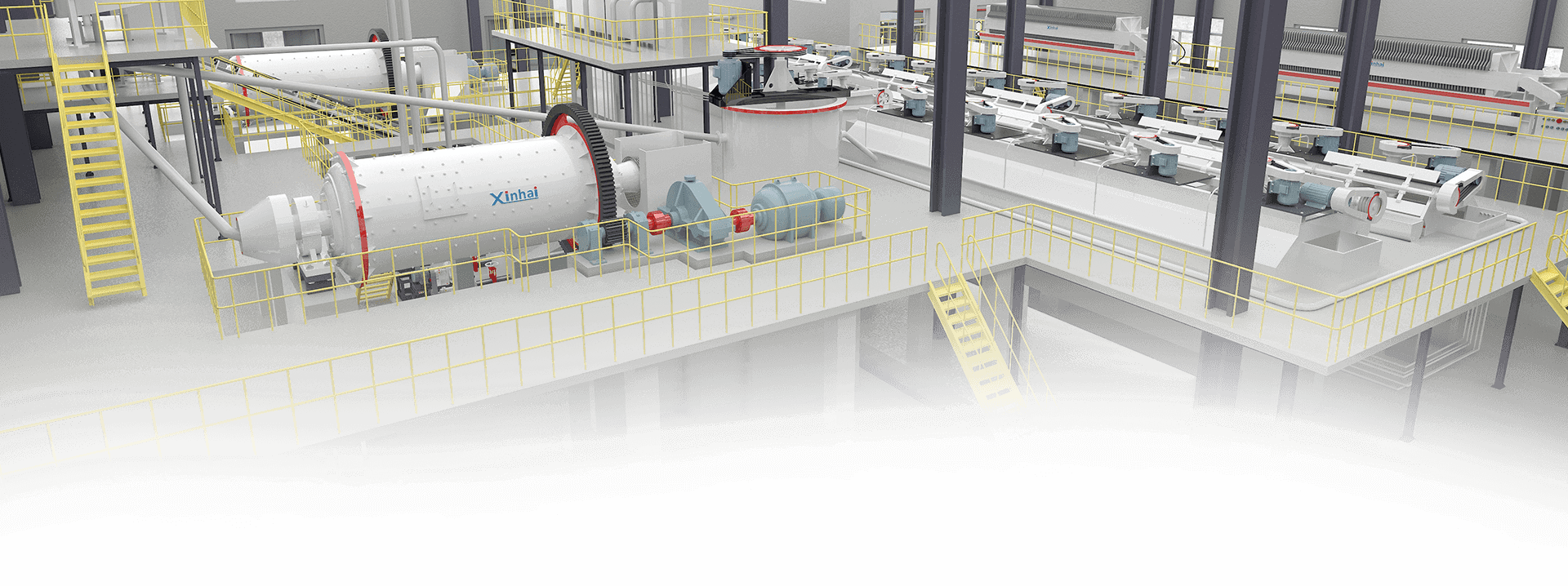
 Message
Message Chat Now
Chat Now


